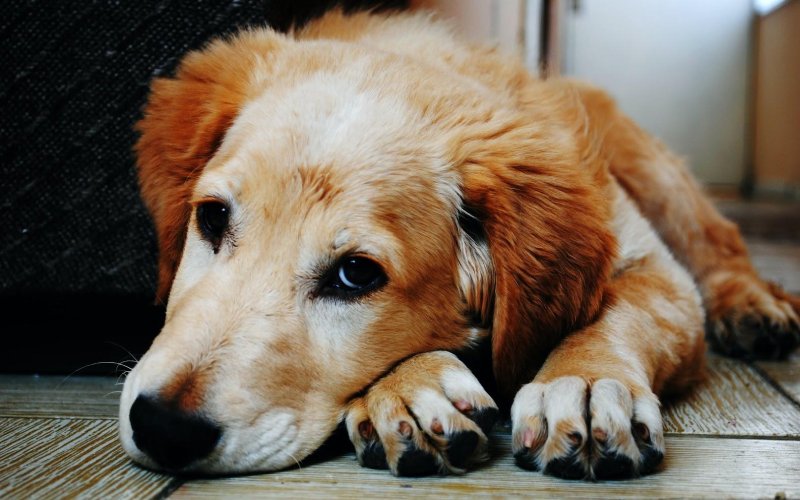If you observe symptoms of a respiratory infection in your dog, immediately consult your veterinarian, as a new unidentified respiratory infection is plaguing the United States.
A myriad of cases has been registered of mystery respiratory illness in dogs in the United States. The disease is said to be an upper respiratory infection, and the symptoms are almost like kennel cough, but it lasts much longer. Also, it may develop into pneumonia and can even be fatal in some cases.
What concerns the dog’s parents is it starts with a persistent cough that stays for weeks and does not respond to its usual treatment, antibiotics.
What Are the Symptoms?
The symptoms of this canine respiratory illness include coughing, sneezing, nasal or eye discharge, lethargy, and intermittent loss of appetite. Also, it may develop into pneumonia, which can become severe because it’s unresponsive to its usual treatment, antibiotics.
According to Dr. Lindsey Ganzer, the Veterinarian, and CEO at North Springs Veterinary Referral Center in Colorado Springs, Colorado, the illness appears to occur very quickly, which means it suddenly goes from a persistent cough to severe pneumonia.
Some of these cases of pneumonia progress swiftly, in about 24 to 36 hours, leaving dogs struggling to breathe.
What Are the Causes?
The cause of the disease is unidentified, and yet to be found. According to researchers at New Hampshire Veterinary Diagnostic Laboratory, early metagenomic tests have not indicated any RNA or DNA virus, fungal, or bacterial respiratory pathogens.
However, according to an article by Colorado State University College of Veterinary Medicine and Biomedical Sciences, clinical tests and findings propose that most dogs with this atypical respiratory infection have a virus that predominantly attacks the respiratory system, which leads to secondary bacterial infection and pneumonia.
The transmission mode is still unclear, but it appears the infection is contagious. Dr Lindsey Ganzer has found a common factor in the cases that all the infected dogs spent time surrounded by numerous other dogs, such as at boarding facilities or doggy daycares.
Researchers are trying to find out whether a new virus, a bacterium, or a severe form of pathogenic agent causes the infection.
Which States Are Affected?
The States that documented a massive number of cases of this respiratory infection include Oregon, Colorado, Pennsylvania, Massachusetts, California, Washington, Rhode Island, Idaho, and New Hampshire.
The Oregon Department of Agriculture has reported more than 200 cases of this respiratory infection in dogs since the middle of August. The illness has been described as an atypical canine infectious respiratory disease.
In Colorado, veterinarians have observed most cases in high-volume places, such as dog parks, doggie day cares, and boarding facilities.
How to Avoid It: Prevention and Management Strategies
The illness is said to be a variant of the canine infectious respiratory disease complex that lasts longer and may have increased occurrences of secondary pneumonia. You can help your dog stay healthy by ensuring the following:
Stay up-to-date on Vaccines
Keeping your dog’s vaccinations up to date is essential for their health because vaccinating helps your dog’s immune system fight different infections.
The routine vaccines include the annual intranasal vaccine for Bordetella, Adenovirus 2, and the parainfluenza vaccine, paired with the injectable influenza H3N2 vaccine. Do not bring your dog to the gatherings until two weeks after the last dose of a vaccine.
Watch them Closely
As dog owners, you must monitor their dogs for continuous coughing, nasal discharge, and sneezing.
Keep Sick Dogs at Home and Consult the Veterinarian
If you observe these clinical signs, especially when your dog loses appetite, is coughing continuously, has trouble breathing, or is lethargic, keep them at home and consult the veterinarian immediately.
Avoid Gatherings
Do not take your dog to the gatherings for some time because the dog may contact the infected dogs.
Reduce Contact with Unknown Dogs
As with any other respiratory pathogens, encountering a dog with infection increases the chances of getting sick the more contact your dog has.
Reduce Your Dog’s Contact with Sick Dogs
If you see another dog sick (sneezing, coughing, nasal or eye discharge), keep your pup away.
Conclusion
Looking out for symptoms and preventing your dog from getting sick are the only ways to keep them safe from this mysterious respiratory illness. So, monitor your dog’s overall health, and if you observe any sign of illness, consult your veterinarian immediately.
Call us if you have questions about this illness or any of our safety protocols.
954-900-3885
florida@olk9.dog
fortlauderdaledogtrainers.com


